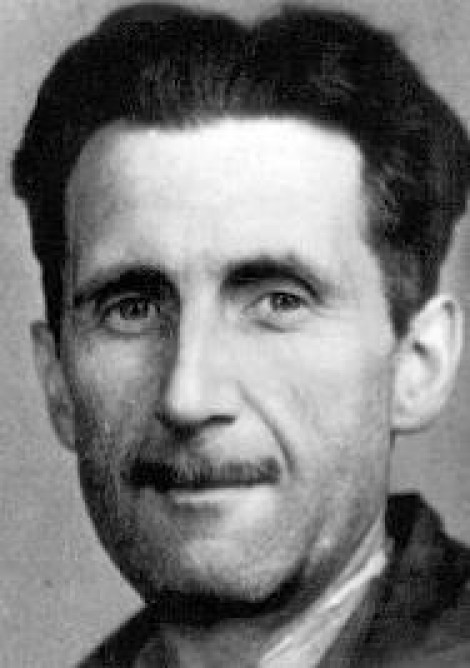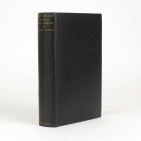ORWELL, George
"If I were a bookmaker, simply calculating the probabilities & leaving my own wishes out of account, I would give odds against the survival of civilization within the next few hundred years".
Please scroll down to see our current stock of Orwell first editions and signed copies.
Eric Arthur Blair (pseud. George Orwell) was born in Bengal on 25 June 1903. The following year he and his mother moved to Henley on Thames, where his family home remained until 1921. He attended Eton College, where he began his writing career with contributions to the school magazine. Instead of going to university he joined the Indian Imperial Police and served in Burma for 5 years.
On his return to England Blair began his journalism career in earnest, with articles appearing in both English and French newspapers. Research into the way the poor lived was to provide the foundation for his first book, Down and Out in Paris and London. Blair was embarrassed to put his own name to the work and suggested it be published under the pseudonym of George Orwell. The book appeared for the first time in January 1933. The author’s first novel Burmese Days, for which he had difficulty finding a publisher due to its political content, a criticism of British Imperialism, was published in 1934. After writing another two novels, Keep the Aspidistra Flying and A Clergyman’s Daughter, Orwell worked on what he described as a “sort of book of essays”. The book describes his journey through the poor areas of the Midlands and the North of England. During his research he stayed with local miners and in a rented room above a tripe shop. His discoveries were published in 1937 in The Road to Wigan Pier.
In 1936 Orwell enlisted in the Workers Party of Marxist Unification and went to fight in the Spanish Civil War. During this time he was shot in the throat and forced to spend some time convalescing. During this convalescence he completed what he considered to be his best book, Homage to Catalonia. The following year Gollancz published Coming Up for Air, in a print run of 2000 copies. The limited print run and the out break of war made the first printings of the book extremely rare. Orwell noted that the book, “had been blitzed out of existence, so thoroughly that in order to get a copy from which to reset it we had to steal one from a public library”.
During the next few years Orwell’s journalism work became much busier including regular work for the BBC, where he worked in the real “Room 101”, broadcasting British War Propaganda. In 1945 Orwell wrote what has gone on to be considered a seminal work, Animal Farm. When questioned about the book Orwell’s response was, “I do not wish to comment on the work: if it does not speak for itself, it is a failure.”
As if the contribution of George Orwell to 20th century literature were not already great enough his final novel went on to provide us with another of the greatest books of the twentieth century. Published in 1949 the ground breaking, Nineteen Eighty-Four, warned of the possible dangers of propaganda and state control. The book has provided us with not one, but a whole host of descriptive phrases which have slipped into the English language’s every day usage.
Months after seeing Nineteen Eighty-Four in print Orwell died of Tuberculosis. He is buried at Sutton Courtenay, Oxfordshire.
Add to favourites



